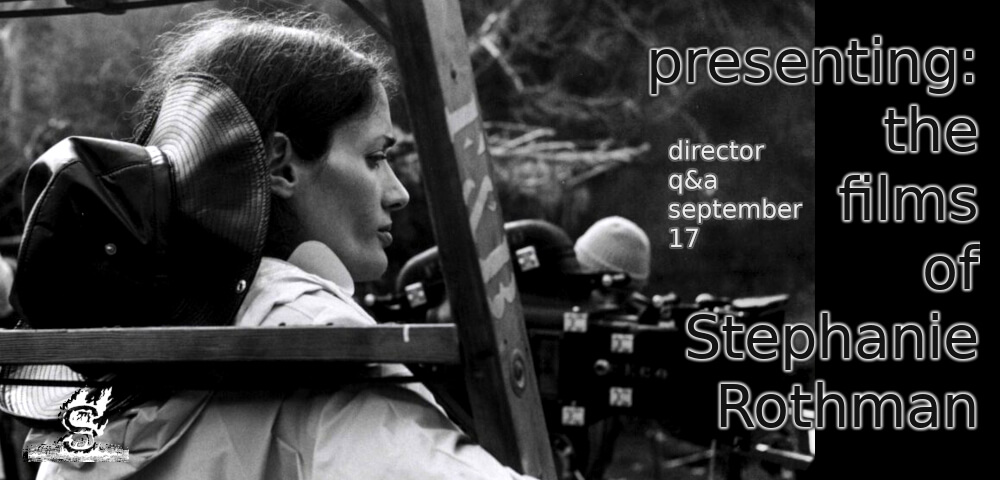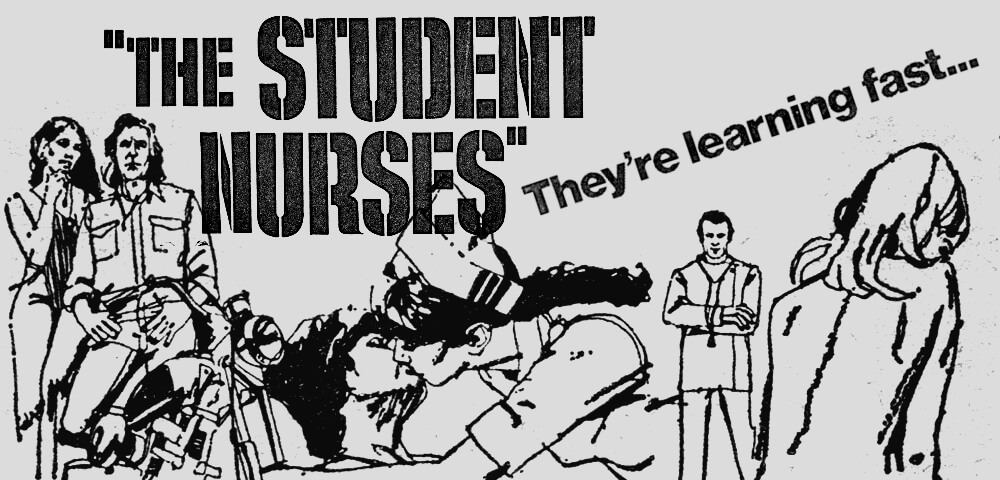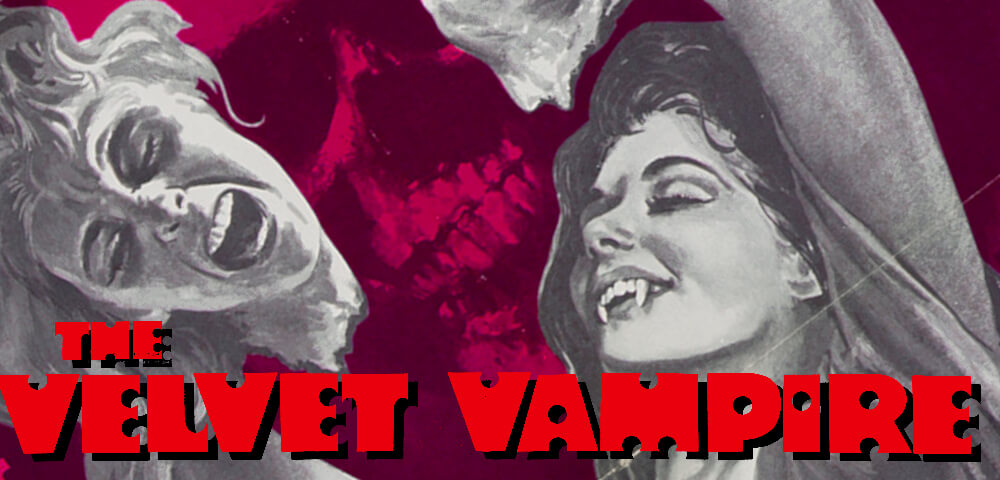
This September, Spectacle Theater is honored to present this once-in-a-lifetime retrospective of the work of renowned independent filmmaker, Stephanie Rothman. Though often labeled as an exploitation filmmaker, Rothman’s work stands as some of the most politically and socially astute works documenting the period of transition between 1960s and 70s America.
Rothman got her start in the early 1960s working as an assistant to Roger Corman, tasked with performing a variety of odd jobs on his productions that ranged from casting and location scouting to re-writing and editing scenes. This experience would eventually land Rothman in the director’s chair on a couple of mid-60s Corman releases: Conducting reshoots on BLOOD BATH (for which she shares directorial credit with Jack Hill), and making her solo directorial debut with the beach party film, IT’S A BIKINI WORLD.
It wasn’t until the early 1970s, though, that Rothman would break out with her work on THE STUDENT NURSES (1970) and THE VELVET VAMPIRE (1972) for Corman’s newly-established production and distribution company, New World Pictures. With few opportunities available to woman directors at the time, Rothman was relegated to making exploitation films with a high volume of sexual content. Despite this, and with the creative freedom afforded to her at New World, Rothman was able to suffuse these works with her own ideological positions and ethics, incorporating plots— and by extension, her own commentary— that openly tackled issues of abortion, drug use, immigration, policing, and sexual empowerment; issues directly relevant to contemporary audiences but that largely absent from major studio productions.
Rothman and her husband, fellow Corman alum, Charles S. Swartz, would eventually leave New World to establish Dimension Pictures alongside Lawrence Woolner, where she continued her streak of progressively-minded productions with GROUP MARRIAGE (1973), TERMINAL ISLAND (1973), and THE WORKING GIRLS (1974). Each of these works expanded the scope of her films’ social politics further, now incorporating topics of queerness, sex work, polyamory, domestic abuse, incarceration, and capital punishment.
Rothman struggled to find work with major studios after leaving Dimension Pictures in 1975, discovering, rather ironically, that she had been stigmatized by her earlier exploitation-adjacent work, despite the obvious filmmaking talent behind them. Regrettably, Rothman wound up leaving the industry less than a decade later, though the legacy of her filmmaking career, its cultural relevance and its importance in the history of women’s filmmaking labor, endures to this day.
Join us on Sunday, 9/17 for a remote Q&A with Stephanie Rothman following a special screening of her final film, THE WORKING GIRLS.

THE STUDENT NURSES
dir. Stephanie Rothman, 1970
United States. 82 min.
In English.
FRIDAY, SEPTEMBER 1 – MIDNIGHT
FRIDAY, SEPTEMBER 8 – 7:30 PM
SUNDAY, SEPTEMBER 24 – 7:30 PM
SATURDAY, SEPTEMBER 30 – MIDNIGHT
Chronicles the romantic and comedic adventures of four young women living together in California and studying to become nurses. Each forges their own wild path through their final year of nursing school: Sharon falls in love with a dying patient, Lynn becomes involved with a Chicano revolutionary, Phred falls into trouble with a young doctor, and Priscilla has an affair with a drug addict. All the while, graduation and the beginning of life in the Real World lie just around the corner.
Rothman’s second solo directorial effort was a landmark release for New World Pictures. The film was only the company’s second release, but would go on to become a box office hit, grossing upwards of a million dollars on a $120,000 budget, and establish New World’s extensive “nurses” cycle of releases (PRIVATE DUTY NURSES, NIGHT CALL NURSES).
For her part, Rothman turned what was originally envisioned by Corman and Larry Woolner as a tawdry sexploitation cash-in into a work of incisive social commentary. With Corman out of the country for most of its production, Rothman was given free reign over the tone, style, and content of the film, so long as it maintained the studio-mandated quotas of nudity and violence.

THE VELVET VAMPIRE
dir. Stephanie Rothman, 1971
United States. 80 min.
In English.
FRIDAY, SEPTEMBER 1 – 7:30 PM
WEDNESDAY, SEPTEMBER 6 – 7:30 PM
SUNDAY, SEPTEMBER 10 – 7:30 PM
FRIDAY, SEPTEMBER 15 – MIDNIGHT
FRIDAY, SEPTEMBER 29 – 10 PM
Lee and his wife, Susan, accept the invitation of the mysterious vixen, Diane LeFanu, to join her at her secluded desert estate. Tensions begin to arise when the couple, unaware at first that Diane is really a centuries-old vampire, realize that they’ve both become the object of the temptress’ seductions.
Following the success of THE STUDENT NURSES, Rothman and Swartz reteamed with Larry Woolner on this unorthodox modern-day vampire tale. Rather than approach it as a straightforward horror story, Rothman used the film as an opportunity to subvert common vampire tropes by making the vampire figure a woman, equally deadly and desirous, and painting Susan’s character as a protagonist rather than a victim.
Visually, the film is Rothman’s most surreal, drawing inspiration from works of Cocteau and Franju as much as it did the adjacent European erotic vampire scene (DAUGHTERS OF DARKNESS, VAMPYROS LESBOS). Rothman’s vampire is less a horror icon than a totem of limitless pleasure, one who eschews a coffin for a lush king-size bed, large enough for three.

TERMINAL ISLAND
dir. Stephanie Rothman, 1973
United States. 88 min.
In English.
TUESDAY, SEPTEMBER 5 – 10 PM
FRIDAY, SEPTEMBER 8 – 10 PM
SATURDAY, SEPTEMBER 23 – MIDNIGHT
THURSDAY, SEPTEMBER 28 – 7:30 PM
In the wake of a Supreme Court decision that deemed the death penalty unconstitutional, California passes an initiative that designates San Bruno Island as a dumping ground for dangerous convicts, free to do whatever they want except leave. When a new group of women convicts is taken to the island prison they must fight to protect themselves against the iron-fisted rule of the tyrannical Bobby and take control of the island for themselves.
Ironically, the film that seems like it would be most outside of Rothman’s wheelhouse— a provocative action-thriller with touches of women-in-prison and blaxploitation fare— wound up arguably being her most explicitly feminist film: It’s plot centering around a group of women’s literal fight for agency within a sado-patriarchal dystopia.

THE WORKING GIRLS
dir. Stephanie Rothman, 1974
United States. 81 min.
In English.
SATURDAY, SEPTEMBER 9 – 7:30 PM
SUNDAY, SEPTEMBER 17 – 5 PM with filmmaker Q&A (This event is $10.)
Honey arrives in Los Angeles in search of a new life, and soon moves in with Denise and Jill. Honey is broke, but resourceful, eventually convincing an eccentric millionaire to hire her as his companion and confidant. Meanwhile, Denise falls in love with a shady musician while nightclub waitress, Jill, winds up in over her head when pressured by her boss to take on other responsibilities. All three women become endangered by the activities of the men in their lives, before realizing that they have to take matters into their own hands.
Rothman’s final film, and the only one for which she is the sole credited writer (or as she puts it, “means I take all the blame for it.”), may just be her masterpiece. By the end of her tenure in the film industry, the political subtext that had colored her earlier works had become the outright text, with sex work, equity in the workplace, and abuse becoming the focal points to each of her characters’ conflicts. What the film may lack in production values compared to her New World productions, it more than makes up for in the sophistication of Rothman’s compositions. While still undoubtedly a sex comedy, Rothman finds subtle ways of visually expressing the film’s themes. Case-in-point: With Jill being a nightclub waitress-cum-manager, of course the film includes gratuitous sequences of women stripping on stage (including a pre-“Elvira” Cassandra Peterson), but before Rothman makes a point of including POV inserts of the hideous men in the club’s audience, their presence lingering over what, in another director’s hands, would have been a lustful rather than dangerously leery affair.
Special thanks to Vinegar Syndrome and to Dr. Alicia Kozma of Indiana University, author of The Cinema of Stephanie Rothman: Radical Acts in Filmmaking, without whom this program would not be possible.
